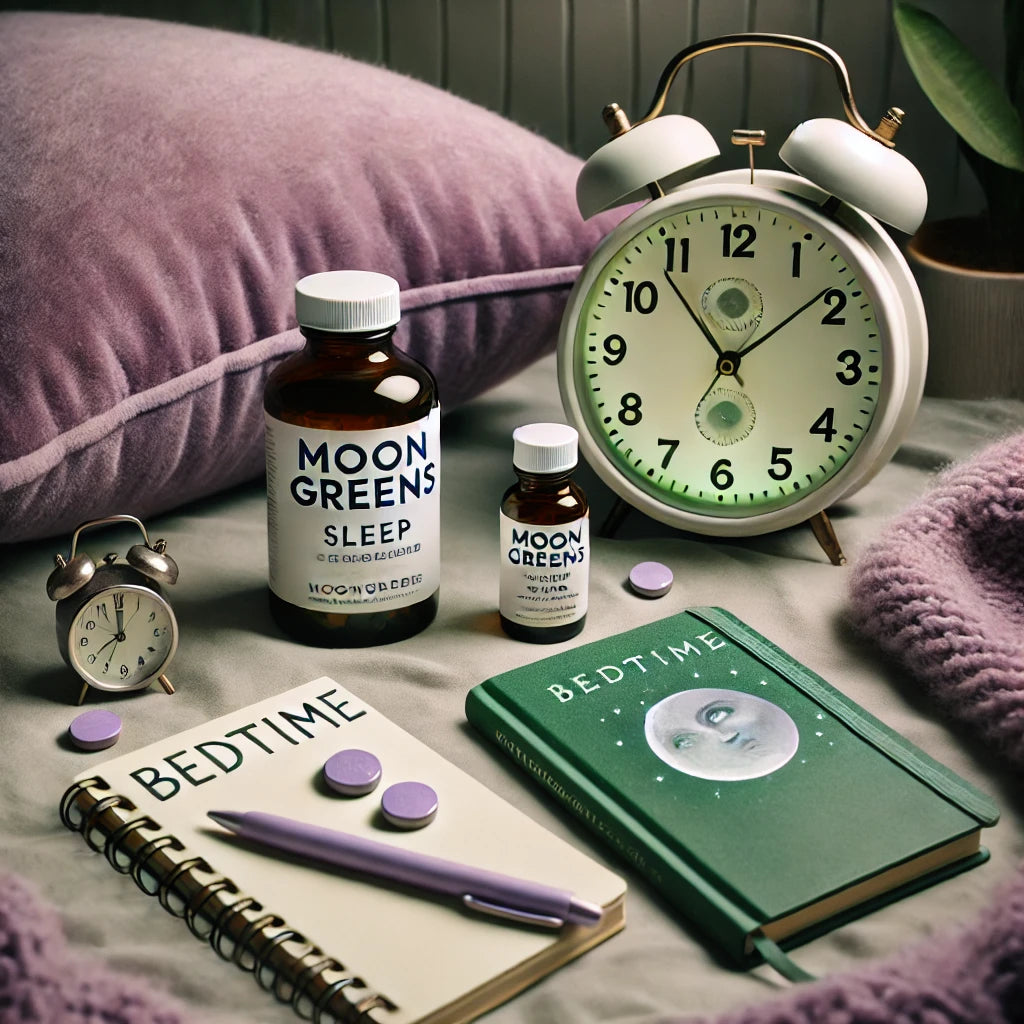Introduction
Hormones play a critical role in regulating your sleep-wake cycle, and sleep significantly impacts hormone production and balance. Understanding the connection between hormones and sleep can help you optimise your rest and overall health. This guide explores the interplay between sleep and hormones and offers tips for maintaining balance.
Key Hormones Involved in Sleep
1. Melatonin
• Known as the “sleep hormone,” melatonin helps regulate your sleep-wake cycle. It’s produced in response to darkness and signals your body it’s time to sleep.
2. Cortisol
• Often called the “stress hormone,” cortisol peaks in the morning to help you wake up and decreases at night to promote relaxation.
3. Growth Hormone
• Released during deep sleep, this hormone supports tissue repair, muscle growth, and overall recovery.
4. Leptin and Ghrelin
• These hormones regulate hunger and satiety. Poor sleep can disrupt their balance, leading to increased appetite and cravings.
5. Progesterone and Estrogen
• These reproductive hormones can influence sleep patterns, particularly during hormonal shifts like menstruation or menopause.
How Sleep Affects Hormone Balance
1. Promotes Hormonal Regulation
• Sleep optimises the release and regulation of key hormones.
2. Improves Stress Response
• Quality sleep helps lower cortisol levels, reducing stress and anxiety.
3. Supports Metabolic Health
• Sleep impacts insulin sensitivity and the balance of hunger-regulating hormones.
Signs of Hormonal Imbalance Due to Poor Sleep
• Difficulty falling or staying asleep.
• Increased stress or irritability.
• Persistent fatigue despite adequate sleep duration.
• Unexplained weight gain or increased appetite.
Tips for Supporting Hormonal Balance Through Sleep
1. Stick to a Sleep Schedule
• Consistent bedtimes and wake-up times support your body’s natural rhythms.
2. Reduce Stress Before Bed
• Practice relaxation techniques like meditation, yoga, or journaling to lower cortisol levels.
3. Prioritise Deep Sleep
• Engage in regular physical activity and create a calming bedtime routine to promote restorative sleep stages.
4. Avoid Late-Night Stimulants
• Limit caffeine, nicotine, and heavy meals in the evening.
5. Use Moongreens for Natural Support
• Moongreens promotes relaxation and deeper sleep, helping regulate hormones naturally.
How Moongreens Supports Hormonal Health
Moongreens’ adaptogen-rich formula:
• Promotes melatonin production for better sleep-wake cycles.
• Reduces cortisol levels to manage stress and improve rest quality.
• Supports overall hormonal balance for improved energy and wellbeing.
The Bottom Line
Sleep and hormones are intricately connected, influencing everything from stress levels to metabolism. By prioritising quality rest and incorporating Moongreens into your routine, you can achieve better hormonal balance and overall health.





